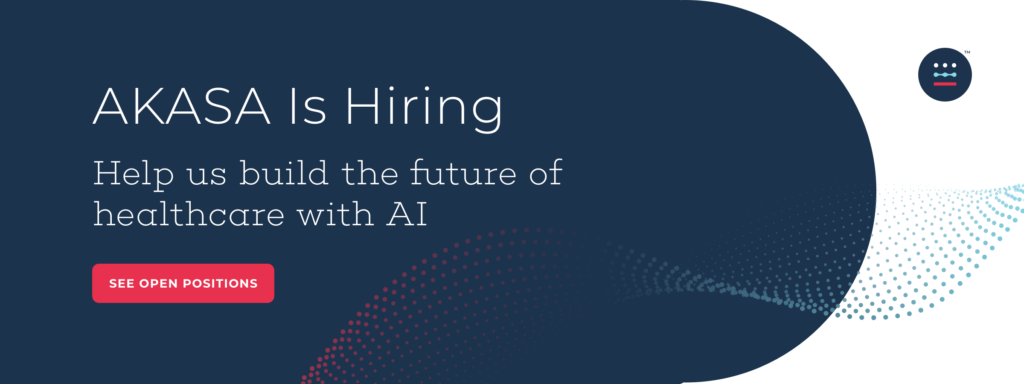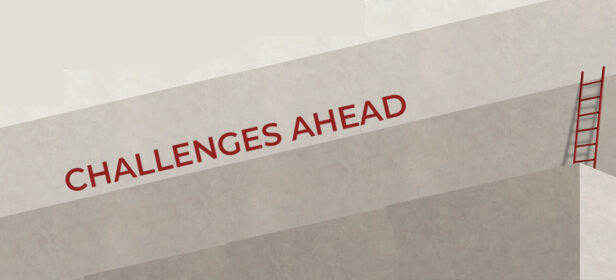The Gist
Armaghan Behlum, a senior software engineering manager at AKASA, has a breadth of engineering experience. Previously at Verily and Google, he was drawn to AKASA for a number of reasons — the talent, the culture, the mission. Has the company met his expectations and delivered? Behlum tells it all, including reasons why engineers looking for a change of pace and a great challenge should join AKASA.
It’s been nearly two years since I left Verily, an Alphabet company focused on using advanced technology to improve health diagnoses and delivery. It’s difficult for many to imagine leaving a company like Alphabet, but here I am. So, what drew me to AKASA, maker of healthcare revenue cycle solutions powered by generative artificial intelligence (GenAI) and machine learning (ML)?
Strong Engineering Talent and Culture
Any time you’re job hunting, you wonder who you’re going to be working with. How will these people change and improve me? What will it be like to work with them? Will they like me and will I like them?
When I came across AKASA and saw the type of work the company was doing, I knew it was a talented team. This was confirmed during my interviews with some of the co-founders and leadership.

During these interviews, I was asked really great, difficult questions that only come from a place of knowledge. On top of that, the conversations themselves were really interesting and exciting. Since starting here, I’ve had four referrals get hired, and each of them agrees — this is an incredibly talented, supportive group.
It was also made clear that Sanjay Siddhanti, the director of engineering and my boss, is really focused on building a great culture. We spoke at length about the hackathons — something I saw on the company’s blog before applying. Hackathons aren’t new to me, but the fact that AKASA actually turns much of what they build at hackathons into useable products was incredible. And, as luck would have it, we held a hackathon shortly after I joined the company.
In that hackathon, I built out a service that then became a part of our platform the following quarter!
Read more about how AKASA runs (virtual) hackathons.
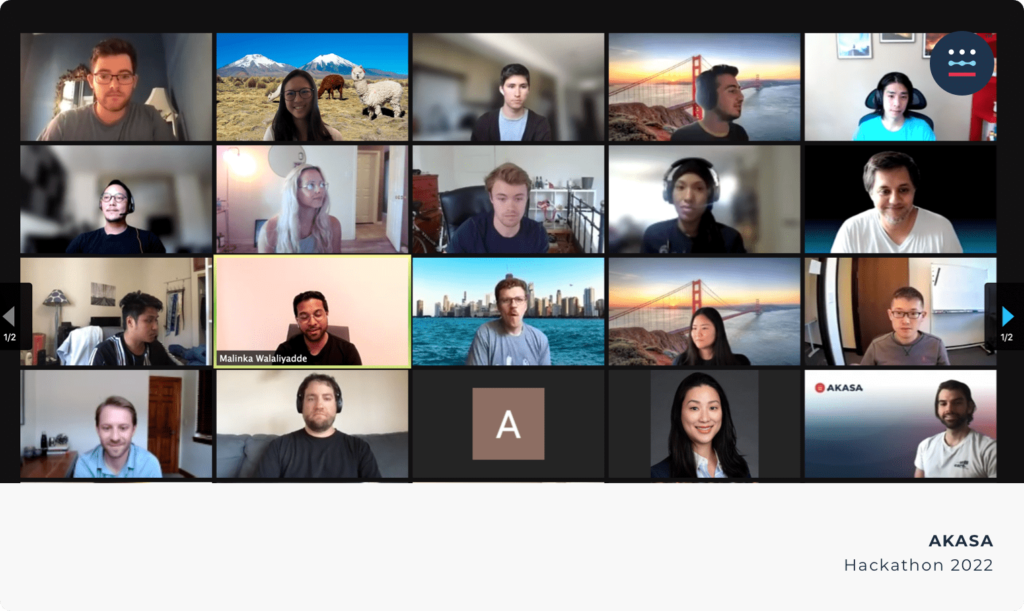
AKASA’s Mission
It’s not every day that engineers get to work for a company with a noble purpose. AKASA’s mission — to tackle difficult problems causing inefficiencies in healthcare — is something I, and most people in this country, can relate to. We’re trying to reduce healthcare operating costs and help health systems allocate resources where they matter most.
This mission resonated with me and was a big draw for me when looking at AKASA. The founders all talk about the inefficiencies in the U.S. healthcare system, and it was immediately apparent to me that they mean what they say. AKASA has clear evidence that they’re reducing inefficiencies and saving time through their automation. Seeing a company with a worthy mission, and seeing them back that mission, is a rarity.
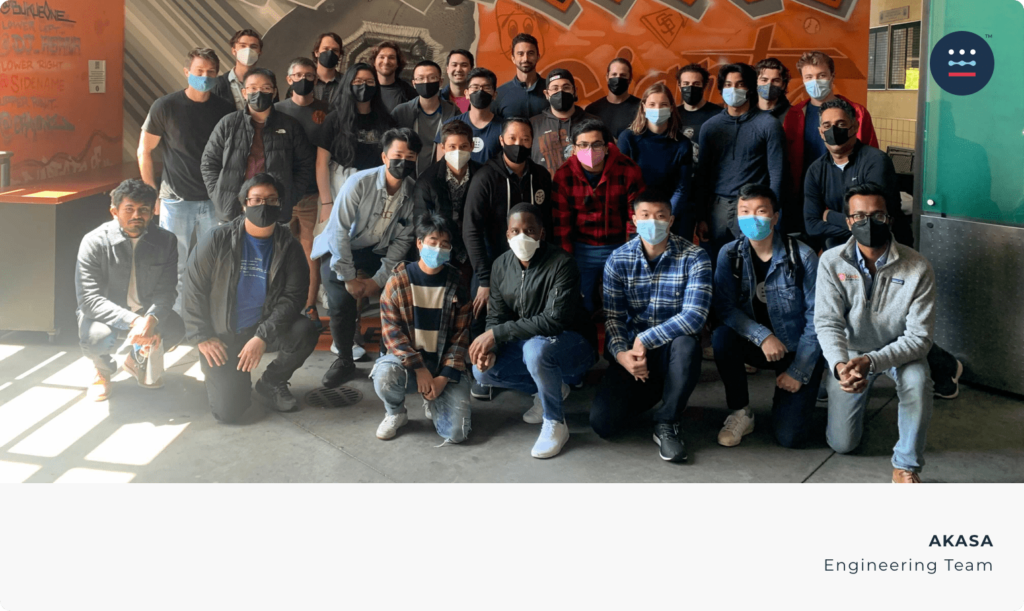
Successful Sales Team
As an engineer, few things are more disheartening than building something great, only for it to never get used. I’ve experienced this in my career, and I know other engineers have as well. Fortunately, the sales team at AKASA delivers.
Both during interviews and immediately after joining, it was clear that the sales team at AKASA does a great job pitching our solutions to the top health systems around the country. We have no shortage of work, which means we’re always getting to tackle new challenges, deploy our GenAI-powered technology in new workflows, and see what we build to make life better for thousands of healthcare specialists and patients. If anything, they push us to be even better and faster because we need to keep up with the critical partnerships they bring.
Life as an Engineer at AKASA
AKASA did a great job selling me on the company. I can safely say they’ve delivered on those selling points and beyond.
During my first year with the company, I felt as if I tackled two to three years’ worth of projects. People often talk about the pace of startups being different from that of larger companies, and they’re right.
At larger companies, things are much slower, so you’re challenged less frequently and learn less as a result. At AKASA, there’s always a fresh challenge, new client, or emerging product or platform to take on. There’s no shortage of critical problems and no shortage of learning.
In slower roles, I’d find myself wondering, “When can I start working on this important thing? What can I work on that’s not blocked?” Here, the question becomes, “This is all important and ready to go. Where can I make the most impact right now?” It’s incredibly exciting.
On top of this, there’s a great knowledge-swapping culture here. We have regular learning sessions, during which internal and external specialists share presentations on different topics. We’ve had doctorates discuss their use of automation to improve cancer treatment, lectures on healthcare economics, and everything in between.
Here’s what Andy Atwal, vice president of engineering and co-founder of AKASA, thinks makes our engineering team so successful.
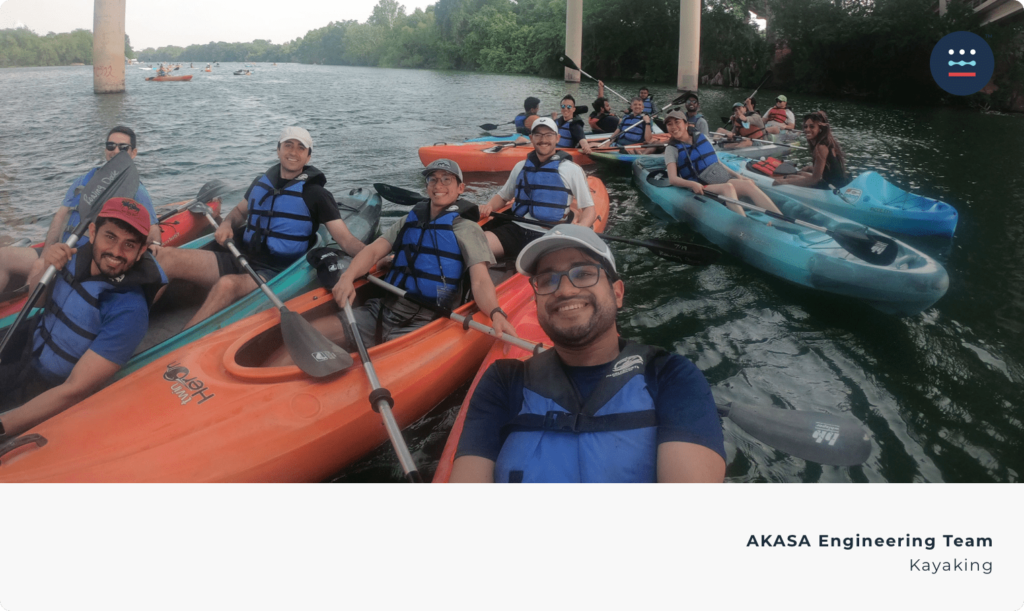
Your Next Engineering Challenge Awaits
Most engineers want to be challenged, learn, and grow. Growing at bigger tech companies is difficult. Opportunities are limited, the pace is slower, challenges are fewer, and chances to build something great are scarce.
At AKASA, I’ve learned, grown, and built more one year than I would in years at larger companies. This company provides the perfect environment for learning and collaboration, setting you up for success and growth — here and beyond.
It can be scary to leave a larger company and the comfort that provides. But between the caliber of people I get to work with and the opportunities I have to solve important problems, I don’t miss a thing.
We’re always looking for talented engineers with an insatiable curiosity and a drive to take on difficult challenges. AKASA has provided me with the learning opportunity of a lifetime, and I know it can do the same for you.
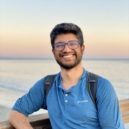
Armaghan Behlum is a senior software engineer at AKASA. An experienced engineer of multiple styles (backend, full-stack, Android/mobile, etc.), he has worked for companies such as Verily Life Sciences, Google, and Audible. Behlum has a degree in computer science from Harvard University.


